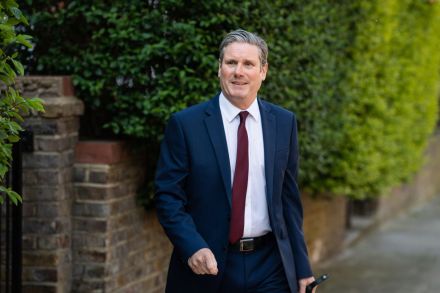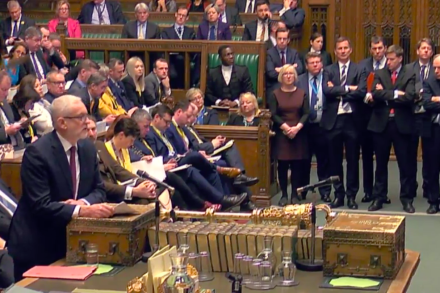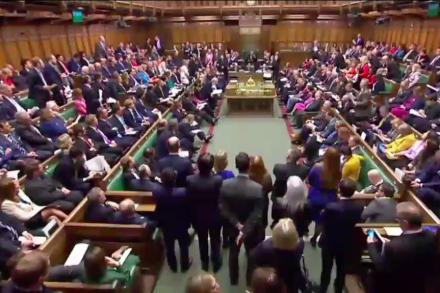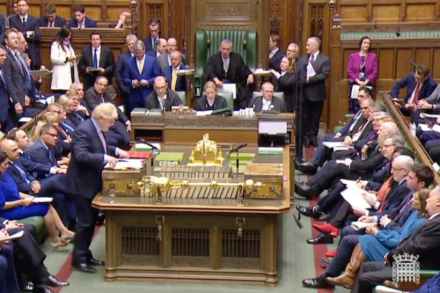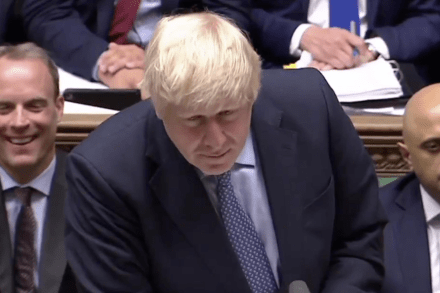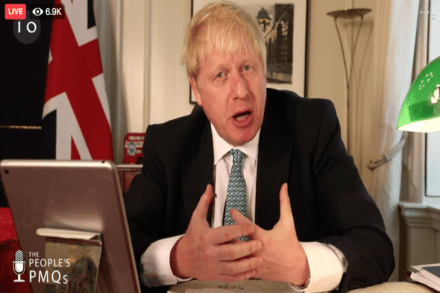Boris’s PMQs performance was the perfect birthday present for Keir Starmer
It was woeful. It was ugly to behold. It was beyond gruesome. Even Boris’s most faithful supporters had to watch PMQs from behind the sofa. Sir Keir Starmer, who turns 58 today, got a fabulous birthday present – a stunningly inept performance from the Prime Minister. Sir Keir demanded a ‘straight answer to a straight question’: when did Boris know ‘there was a problem’ with the algorithm used to decide A-level grades? ‘May I congratulate him on his birthday,’ said Boris – making it clear he hadn’t the foggiest what to say. The Prime Minister then started firing off random phrases in the hope that a coherent sentence might accidentally




